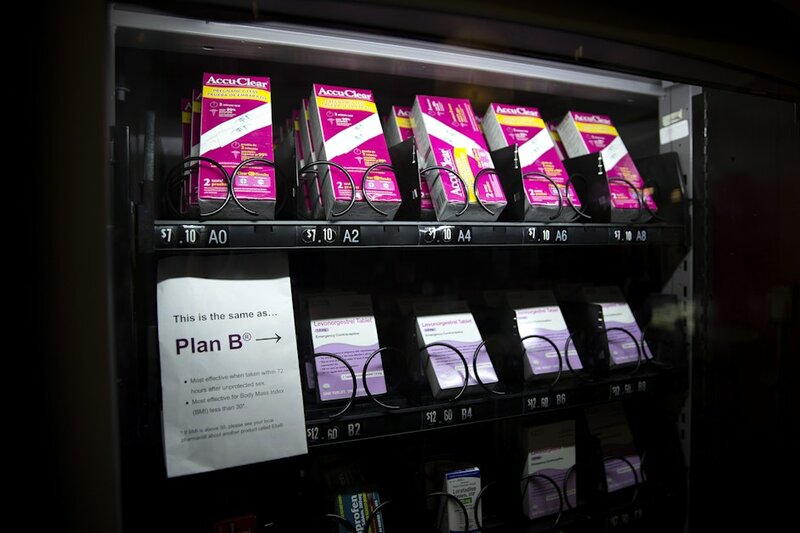There’s a new kind of vending machine on the University of Washington campus.
It sells pregnancy tests, tampons, tylenol – and the morning-after pill for $12.60, packaged in purple and white boxes.
It’s one of three of these vending machines on Washington state campuses. And starting in 2024, public colleges and universities statewide will be able to get funding to install vending machines of their own. It’s all part of a national movement to make emergency contraception more readily available to college students — and some groups are pushing back.
The morning-after pill is often known by the brand name Plan B or, by medical providers, as emergency contraception. You have to take it within three days of having unprotected sex or a condom failing.
In the first three months after the UW’s machine went in, more than 300 contraception packages were sold. In the half-hour I was near the machine, a couple came by to buy a pregnancy test, fumbling with their credit card and the machine.



 Seattle
Seattle Drugs
Drugs Pharmaceuticals
Pharmaceuticals


